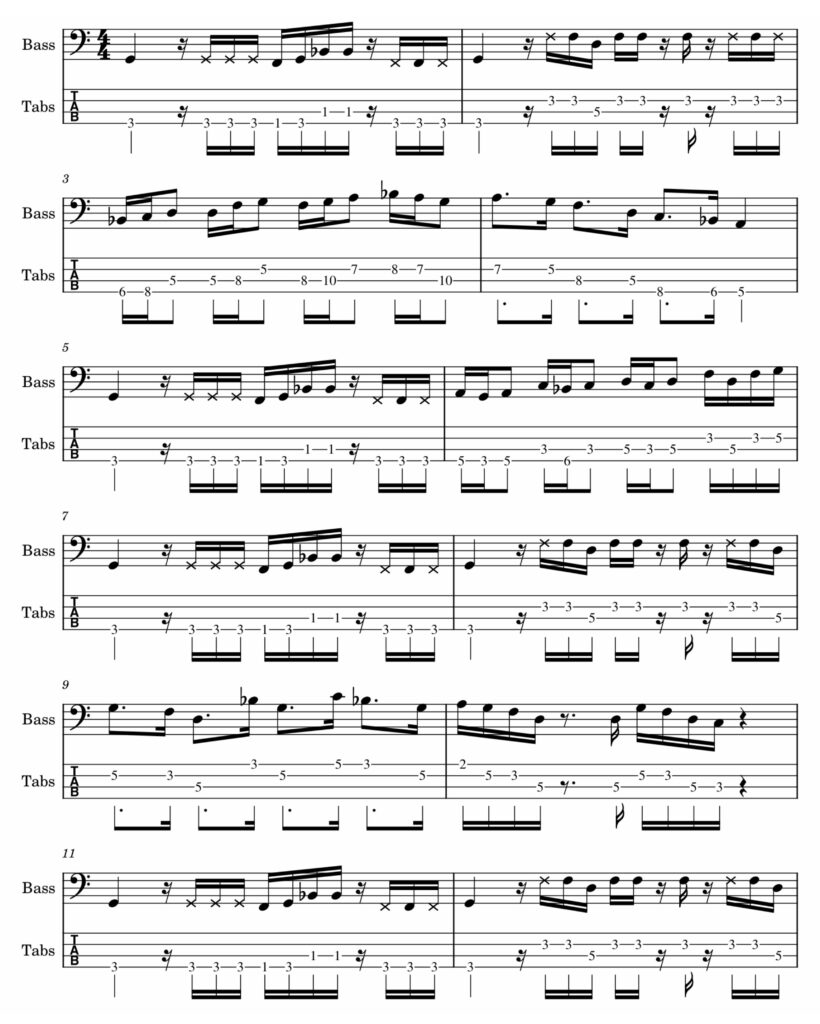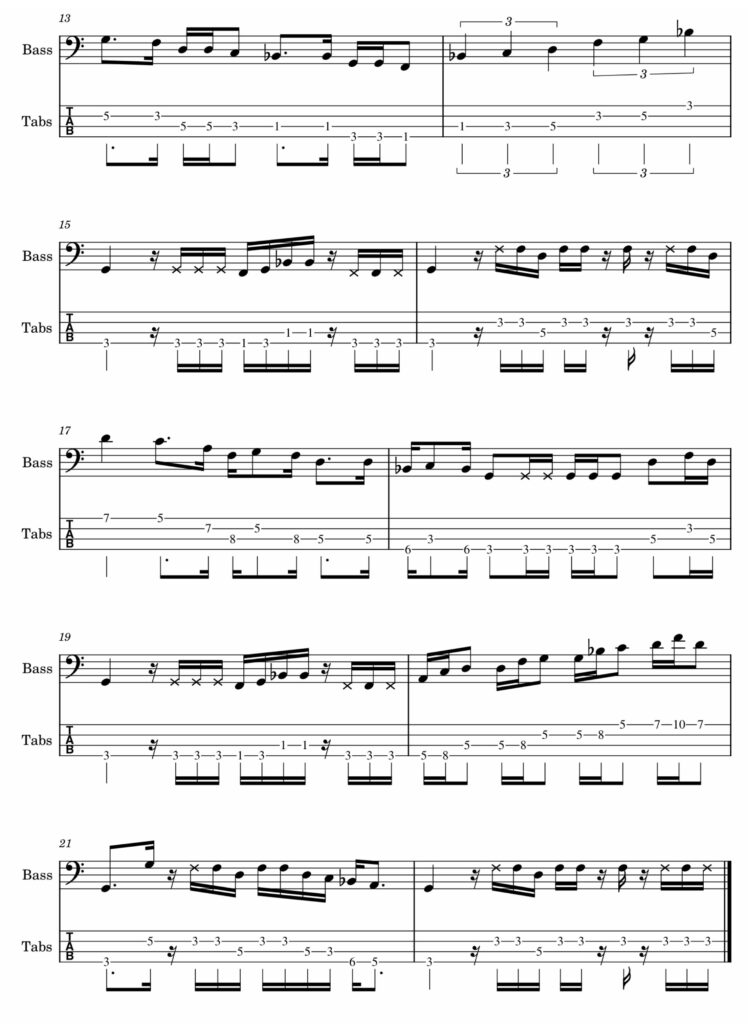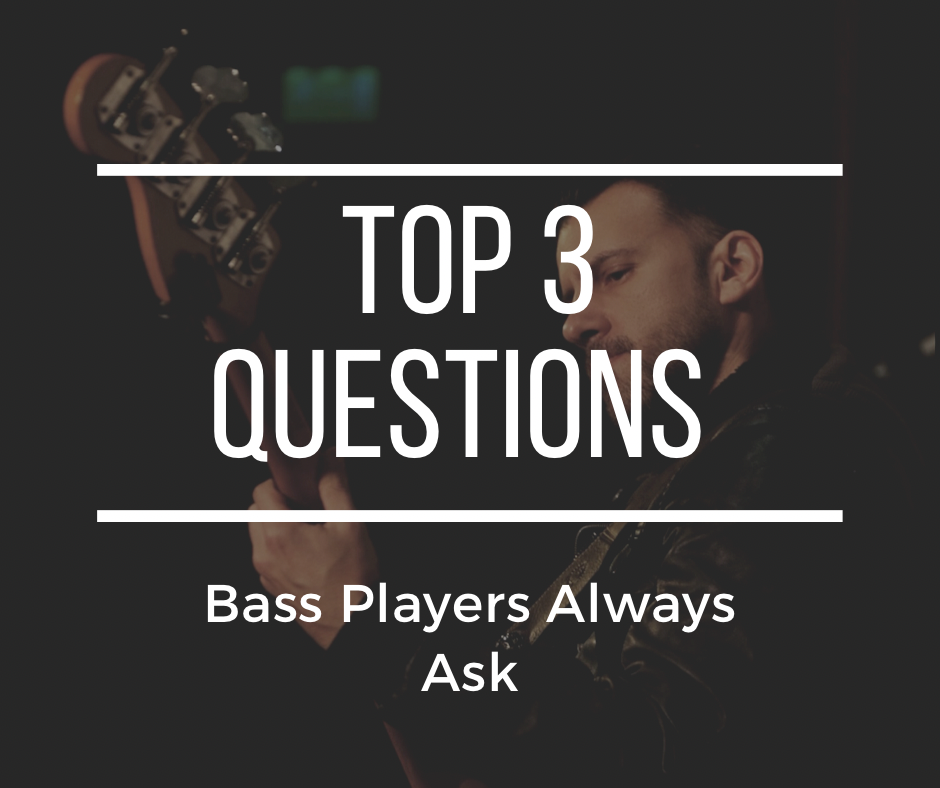Becoming a Great Bass Player
Whether you’re a beginner or an intermediate player, aspiring to be good at bass playing or even a great bassist is a journey filled with excitement and challenges. In this post I’ll discuss some questions that come up often when chatting with other bass players.
Imagine this: Every legendary bassist started somewhere, facing the same challenges that we all do. They too grappled with mastering the fretboard, developing their technique and seeking that perfect bass tone. Their journeys were filled with dedication, setbacks and moments of breakthrough.
1 – How to Be Good at Bass Playing
Whether you’re starting as a beginner or have some experience, the path to becoming a good bass player involves mastering the basics and continually refining your skills. Here’s how:
- Practice Regularly: Dedicate time to practice consistently and different topics.
- Learn Harmony & Theory: Understand scales, chords and harmony to elevate your playing.
- Develop Rhythm: Bass players drive the rhythm; develop a strong sense of groove.
- Master Technique: Refine your techniques with Hammer Ons, Pull Offs, Slides, etc.
- Explore Styles: Analyse basslines in various genres, experiment with different styles to diversify your skills.
- Craft Unique Bass Lines: Learn to compose and perform bass lines.
- Emulate Great Bassists: A great way of learning how to play like your heroes and to use the material your own way it’s by listening to their records and analyse what they do.
Recommended Program: Elevate your foundational skills with the Fret Trainer Ebook, a comprehensive guide to mastering the fretboard and developing your technique.
2 – How to Get a Good Bass Tone
Achieving a great bass tone is crucial, especially since different types of music may demand distinct tonal characteristics. Here are some tips to help you find your ideal bass tone:
- Good Gear: Invest in a good bass guitar first and a good amplifier after. Quality equipment can make a significant difference, allowing you to tailor your tone to match the musical style you’re playing.
- Experiment with Settings: Adjust your instrument’s settings and experiment with EQ to find your desired tone. Remember that certain genres, like funk or rock, may call for a different sound. Learn what each part of the EQ does and how effects can change it.
- Play with Finesse: Technique plays a crucial role in tone. Practice precision in your playing to achieve clarity and articulation. How you pluck the strings can greatly affect the tonal nuances, so adapt your technique as needed for the music you’re playing.
Recommended Program: Enhance your bass tone with our Tech Lab Ebook, which offers advanced techniques and tone exploration to help you find your signature sound.
3 – How Long Does It Take to Get Good at Bass
The journey varies for each player, but consistent practice and dedication are key. It may take a few years to become proficient, the 10 thousand hrs of practice is actually a true approximation but remember that the learning process is ongoing. To continually improve at bass:
- Set Goals: Define what you want to achieve and work systematically toward those goals.
- Seek Guidance: Consider taking bass lessons, it is important to have a mentor.
- Jam and Collaborate: Playing with others can accelerate your progress and help you adapt to different musical situations.
Recommended Programs: Take your bass journey to the next level with the comprehensive Bass Mentorship Program, designed to guide you through the stages of becoming a proficient bass player.
Becoming a great bass player is a rewarding journey filled with growth and creativity. Remember to practice consistently, expand your musical knowledge and never stop striving for improvement.


